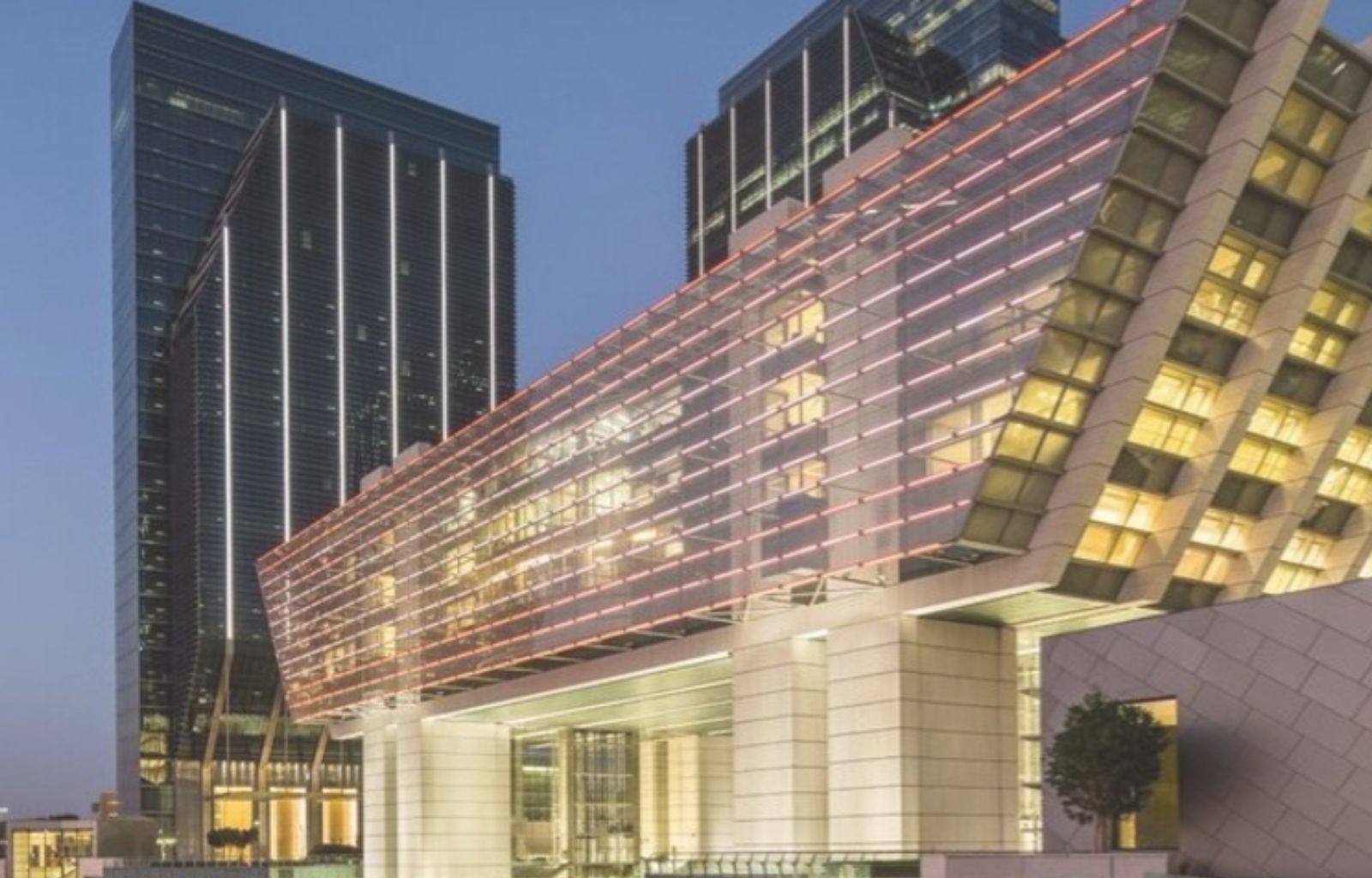
Dubai Arbitration Week 2020 | UAE Arbitration Law & Legal Services
Throughout Dubai Arbitration Week (16th – 24th November) junior associate, Ahmed Galadari, will be providing a recap of the sessions. We will be updating this running commentary at the end of each day;
Day 1: Monday November 16
The first day of Dubai Arbitration Week (DAW) yesterday started off on a strong note with discussions around the effectiveness of expert evidence in construction arbitration. By way of reminder, the ICC Commission considers the use of each party-appointed experts and tribunal-appointed experts, as well as the use of a tribunal member’s own expertise, in construction arbitration’s, setting out helpful guidance for improving each approach. Although the use of tribunal-appointed experts can be beneficial in some circumstances, it does not appear that such an approach garners widespread favour among participants as of yet. The ability to engage party-appointed experts is one of the main advantages of choosing arbitration over litigation.
In the following session, some interesting remarks were shared on the UAE Federal Arbitration Act which was enacted two years ago. The UAE Federal Arbitration Law was long-awaited, is considered to be milestone and has improved the practice of arbitration in the region, however there are some concerns, particularly with challenging an arbitration award.
The first day ended with the most awaited session on “Emergency arbitration and interim relief in construction arbitration”. During the session ICC and ICA Counsel Asli Yilmaz stated that there have been over 20 emergency arbitration since April 2020. It is known within arbitration and legislative rules that arbitral tribunals have the authority to grant interim relief, and practice dictates that all the parties should make those applications to arbitral tribunals and will not only rely on courts for that support. Parties must make important decisions whether they submit their applications to an arbitral tribunal, an Emergency Arbitrator or a court. That said, arbitral tribunals may not have the full authority to award the relief sought.
Day 2: Tuesday November 17
The most talked about session of the day kicked off first, with discussions on arbitration between Israeli and Arab parties
The Abraham Accords Peace Treaty between the UAE and Israel has created great opportunities for the two countries to cooperate in many sectors including finance investment, science and technology and the airline industry. The UAE has ratified an aviation agreement between the countries, meaning there will soon be at least 28 commercial flights per week between the UAE and Israel. Trade and business have become more efficient due to direct trade being possible between the countries, rather than third parties being involved.
Applying Israeli Arbitration Award in the UAE and vice-versa, was previously very difficult, despite both countries being part of the Recognition and Enforcement of Foreign Arbitral Awards, commonly known as the New York Convention.
Israel is a Common Law jurisdiction, given that it was under a British mandate, whereas the UAE system is Civil Law, aside from the common law DIFC Courts and ADGM Courts. However, the Israeli legal system adopts the concept of good faith as a general rule, which is primarily a Civil Law concept. Contract formation in Israel is based primarily on French and Swiss law. The courts in Israel are in Hebrew, however many judges speak English so if necessary, they may communicate in English. Similar to the UAE, where courts procedures are in Arabic, but English is spoken by many judges. Overall, it appears the treaty will simplify the arbitration and other legal proceedings between the two countries.
The following session interestingly delved into the shifting borders of Middle Eastern commerce. Since 1997, the UAE has been proactive in establishing bilateral treaties and have so far established 23 treaties with African countries. By way of examples, Mubadala, the state-owned investment company, invested in a power plant in Algeria, which is the first privately owned power plant in Algeria. Emaar Properties have been developing in Egypt and Etisalat provide telecom solutions in Egypt. The UAE is considered to be the largest investor, of the Arab nations, in Egypt with estimated investments of $7.2 billion and over 1000 Emirati companies operating in the country.
Dubai is now considered to be a global jurisdiction resembling London and New York with an Arab flavor, with many companies and offices establishing their presence in the city. The legal infrastructure in the UAE is evolving, assisted by the 2018 Arbitration Law. As such, the UAE is on a right path to become a Hub for Arbitration, and it is evident that UAE investors are active in arbitration proceedings.
Day 3: Wednesday November 18
The regional focus on day 3 of Dubai Arbitration Week was on Saudi Arabia and whether the country is the “next frontier for Arab arbitration”. Some takeaways from the session include:
- Since the promulgation of the 2013 Arbitration Law in Saudi Arabia it has been recognised by other Arab nations that Saudi should be considered as a friendly seat for arbitration
- There are still some points of contention including the fact the Saudi Arabia Arbitration Law specifically states that an arbitrator in the country must be a law or sharia graduate and, that Saudi Arabia should employ a more dynamic court system, similar to the UAE system with civil law and common law courts
- In 1994 Saudi Arabia signed the Convention on the Recognition and Enforcement of Foreign Arbitral Awards, commonly known as the New York Convention, meaning they must recognise and enforce arbitration awards made in other contracting states. Additionally, the Execution Court in Saudi Arabia enforces both domestic and foreign judgements and $3 billion worth of foreign judgements have been undertaken in Saudi courts
- In a landmark decision, just this decade, Saudi Arabia introduced new laws allowing women to obtain a licence to practice law and to appear in court.
The session covering the “evolution of international arbitration” also highlighted Saudi Arabia becoming an emerging hub for arbitration. Arbitration in the MENA region has evolved immensely in recent years, particularly with Dubai being on track to become the next major Arbitration hub, with many young practitioners now looking to become arbitrators.
Day 4: Thursday November 19
The final day of Dubai Arbitration Week was another interesting one, as third-party funding in the MENA region was discussed at length. The topic is particularly relevant with the current Covid-19 pandemic still affecting individuals and businesses across the globe. Covid-19 has not affected third party per se; however, it has affected the global economy, hence, cash flow is becoming restricted and more businesses are turning to third-party funding. It is important to note that arbitration funding is more lenient than onshore litigation funding.
For more background information on third-party funding in the UAE, see the related article here by associate, Mustafa Khalid.
The week closed on “The GAR Interactive Debate” where it was debated that every party to an arbitration should have the right to a live, not virtual, hearing. During the debate, each party had their opinions on live vs virtual hearings, however one point of agreement was based on technical issues, or example difficulty with WiFi connection, background noise or the hearing being disrupted by external parties. Those in favour of virtual hearings expressed their opinion that the world and technology is evolving, particularly since Covid-19 hit and we were forced to rely on technology. There are many benefits of this, including a lesser cost as there is no requirement for an event space, or for the tribunals expenses. It is also more convenient in terms of time as there is no need to travel.
Opinions varied during the debate, however one thing which is clear is that virtual hearings, for the moment, are here to stay.



